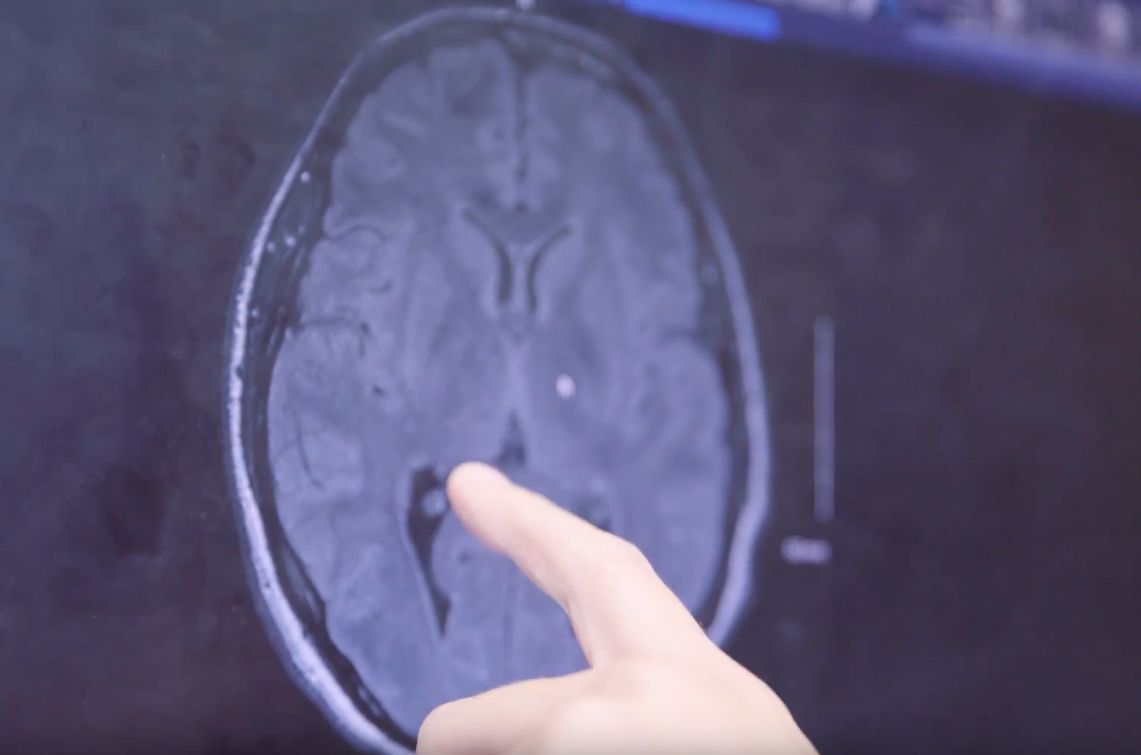A brain cyst or cystic brain lesion is a fluid-filled sac in the brain. They can be benign (not cancer) or malignant (cancer). Benign means that the growth does not spread to other parts of the body. A cyst may contain blood, pus, or other material. In the brain, cysts sometimes contain cerebrospinal fluid (CSF). CSF is a clear liquid that bathes and cushions the brain and spinal cord. Some brain cysts begin before birth.
Even if a brain cyst is not cancer, it can still cause problems. The cyst may press against brain tissue and cause symptoms, such as headache, vision problems, or nausea. If this happens, you may need surgery to remove the cyst. In some cases, if the cyst is small and not growing and is not likely to cause symptoms, your healthcare provider may advise watching it instead of surgery.
There are different types of brain cysts:
- An arachnoid cyst is also known as a leptomeningeal cyst. This is a cyst between the brain and the arachnoid membrane. This membrane is one of the protective coverings around the brain. An arachnoid cyst contains CSF. These appear most often in children, but they may also happen in adults. This type of cyst happens more often among males than females.
- A colloid cyst is a gel-filled cyst. It often forms in one of the 4 ventricles of the brain. The ventricles are the CSF reservoirs in the brain. Colloid cysts usually happen in the third ventricle. This is in a central spot in the brain. The cysts can lead to blockage of CSF flow off and on, and cause positional headaches. These are headaches that happen when a person is in a certain position. These tend to appear during adulthood.
- A dermoid cyst is a rare type of cyst. It forms when a few skin cells get trapped when the brain and spinal cord form before birth. These cysts may even contain sweat gland cells or hair follicle cells. These often appear in children.
- An epidermoid cyst is also called an epidermoid tumor. Like a dermoid cyst, it forms from a bit of tissue that gets trapped when the brain and spinal cord form. Epidermoid cysts do not contain sweat glands or hair follicle cells. They grow very slowly. These cysts usually first appear when a person is an adult.
- A pineal cyst happens on the pineal gland in the middle of the brain. This type of cyst usually only shows up during imaging scans done for another reason. Pineal cysts seldom cause problems. If they do grow large, they can sometimes affect vision. They can appear in people of any age.
- A brain abscess happens anywhere in the brain as a single t or multiple cysts. Abscesses are usually caused by a bacterial infection . They are sometimes caused by a parasite or a fungus.
- A neoplastic cyst is due to a benign or malignant tumor. When a brain tumor starts outside the brain, it is called metastatic.
